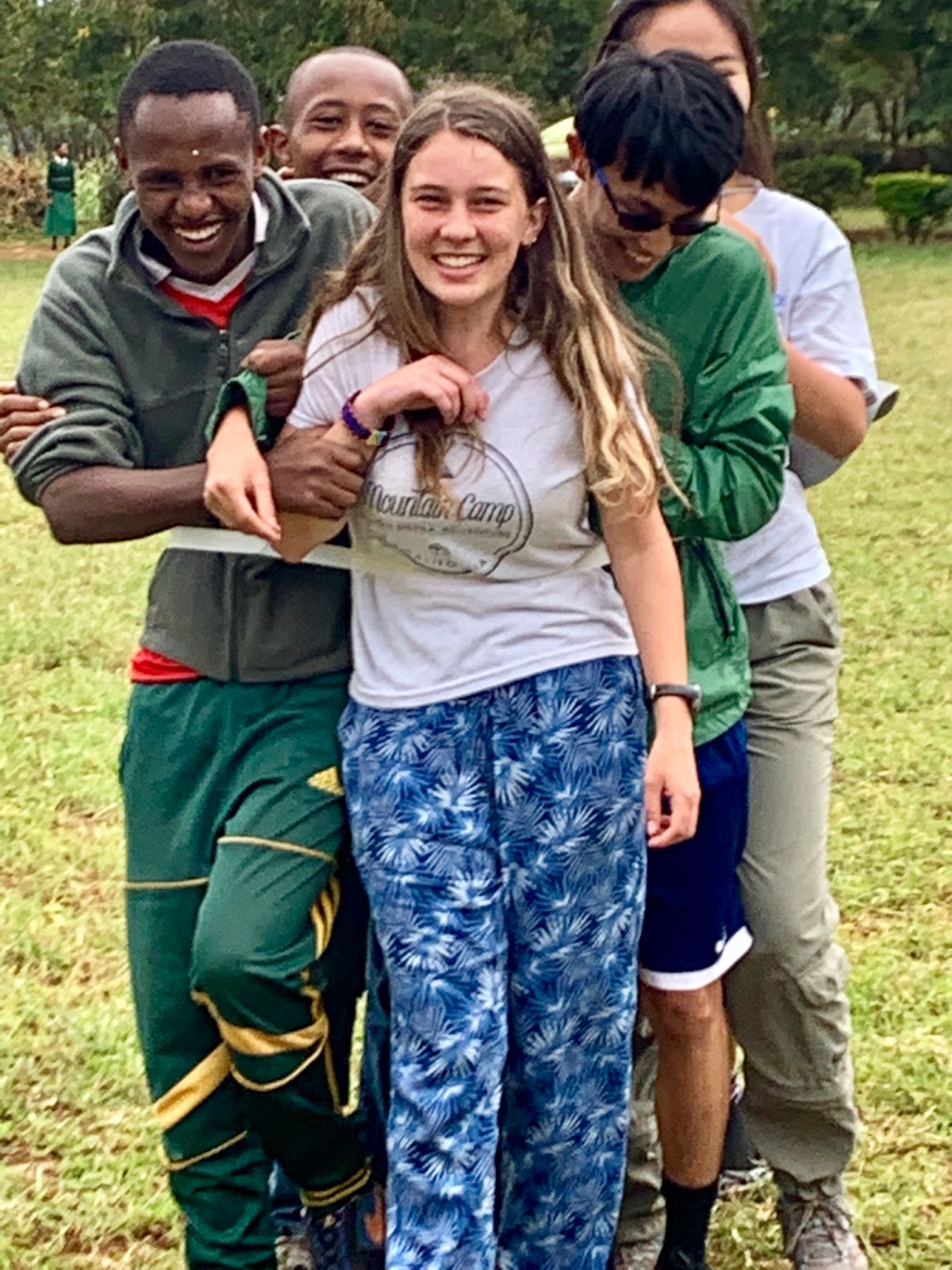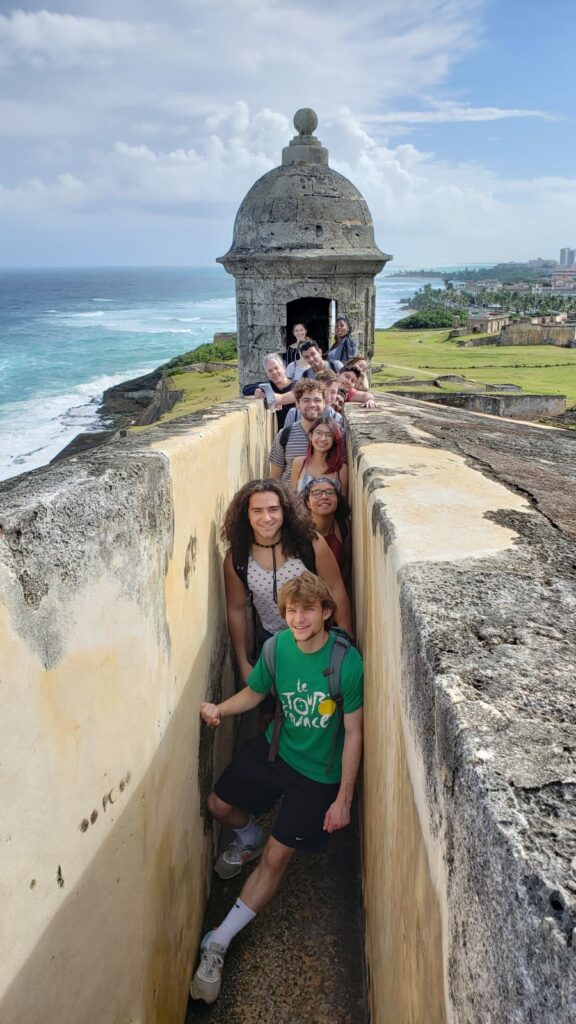Security Alert May 17, 2024
Worldwide caution, update may 10, 2024, information for u.s. citizens in the middle east.
- Travel Advisories |
- Contact Us |
- MyTravelGov |

Find U.S. Embassies & Consulates
Travel.state.gov, congressional liaison, special issuance agency, u.s. passports, international travel, intercountry adoption, international parental child abduction, records and authentications, popular links, travel advisories, mytravelgov, stay connected, legal resources, legal information, info for u.s. law enforcement, replace or certify documents, before you go.
Learn About Your Destination
While Abroad
Emergencies
Share this page:
Crisis and Disaster Abroad: Be Ready
What the Department of State Can and Can't Do in a Crisis
Information for U.S. Citizens about a U.S. Government-Assisted Evacuation
Traveler's Checklist
Safety and Security Messaging
Best Practices for Traveler Safety
Staying Connected
Smart Traveler Enrollment Program (STEP)
Traveler Information
LGBTQI+ Travelers
Adventure Travel
High-Risk Area Travelers
Travelers with Dual Nationality
Journalist Travelers
Faith-Based Travelers
Pilgrimage Travelers (Hajj and Umrah)
U.S. Students Abroad
Cruise Ship Passengers
Women Travelers
Travelers with Disabilities
Older Travelers
U.S. Volunteers Abroad
Travelers with Pets
Travelers With Firearms
Travel Agents
Travel Safety - Race and Ethnicity
U.S. Travelers in Europe's Schengen Area
Your Health Abroad
Insurance Coverage Overseas
Driving and Road Safety Abroad
Customs and Import Restrictions
Information for U.S. Citizens in Russia – Travel Options Out of Russia
Lodging Safety
Paris 2024 Olympics and Paralympics

We have no higher priority than the safety and security of U.S. citizens overseas, including U.S. students abroad. Exploring new places and other cultures is rewarding and fun. But it is also important to do so safely. Take time to learn about your destination from our Country Information pages. Be mindful of your surroundings. Learn the local laws and customs. Keep a low profile and be prepared.
- Sometimes – in spite of good planning – things can still go wrong. Read about how to plan for a crisis abroad before you go. Check in with family and friends on a regular basis. Ensure your family knows how to contact you in case of an emergency. If you can, use location sharing on your smart device. In an emergency, know how to contact the relevant local authorities as well as the nearest U.S. embassy or consulate .
- Understand local laws about the legal drinking age as well as alcohol and drug prohibitions. If you consume alcohol, drink responsibly and in moderation. Utilize the buddy system and make sure a trusted friend knows where you are. Seek medical attention if you think you have been drugged or begin to feel ill.
- Students are more likely to encounter theft and assault when they are in an unfamiliar place. If you have questions or need to report an incident, contact the American Citizens Services unit at the nearest U.S. embassy or consulate . You may also contact the U.S. Department of State’s Bureau of Consular Affairs in Washington, D.C. at 888-407-4747 or 202-501-4444. We have an officer available to assist you in an emergency 24/7.
- Follow the social media accounts of the nearest U.S. embassy or consulate in your destination. Check for information about your destination there. You can also check there for information during crises.
Review our Traveler’s Checklist , which includes:
- Information about travel documents you may or will need – like a passport and foreign visa.
- Information about overseas insurance coverage.
- Information specific to certain subsets of travelers, such as faith-based travelers, LGBTQI+ travelers, women travelers, and many others.
- Consider the benefits of Enrolling in our Smart Traveler Enrollment Program (STEP)
- Directly receive important information from the Embassy about safety conditions in your destination country, helping you make informed decisions about your travel plans.
- Help the U.S. Embassy contact you in an emergency, whether natural disaster, civil unrest, or family emergency.
- Help family and friends get in touch with you in an emergency.
Other Resources
Overseas Security Advisory Council (OSAC)
Bureau of Educational and Cultural Affairs (ECA)
ECA promotes study abroad. It provides exchange opportunities for U.S. students. Visit studyabroad.state.gov and exchanges.state.gov for more info.
U.S. Centers for Disease Control and Prevention (CDC)
Check out the CDC Studying Abroad Travel Advice and Tips before you go abroad.
Learn about your destination
Learn more:, enroll in step.

Subscribe to get up-to-date safety and security information and help us reach you in an emergency abroad.
Recommended Web Browsers: Microsoft Edge or Google Chrome.
Check passport expiration dates carefully for all travelers! Children’s passports are issued for 5 years, adult passports for 10 years.
External Link
You are about to leave travel.state.gov for an external website that is not maintained by the U.S. Department of State.
Links to external websites are provided as a convenience and should not be construed as an endorsement by the U.S. Department of State of the views or products contained therein. If you wish to remain on travel.state.gov, click the "cancel" message.
You are about to visit:

An official website of the United States government
Here’s how you know
The .gov means it’s official.
Federal government websites often end in .gov or .mil. Before sharing sensitive information, make sure you’re on a federal government site.
The site is secure.
The https:// ensures that you are connecting to the official website and that any information you provide is encrypted and transmitted securely.
Guidance for Student Foreign Travel
Department of Health and Human Services , March 2020
This guidance is for Institutes of Higher Education with students participating in international travel or study abroad programs during the COVID-19 pandemic.

- Dec 1, 2021
What to consider when planning an overseas educational visit
Updated: Mar 13, 2023

Planning an overseas educational visit
It can take up to 12 months to organise a successful overseas educational visit so whilst the pandemic continues to have an effect on international travel, many school and youth groups are already planning future trips for the multitude of benefits that these experiences bring and the impact they have on young people’s learning and personal development.
What to consider when planning an overseas trip
Most countries have clear policies regarding the entry requirements for vaccinated and non-vaccinated adults. For children, entry requirements are often based on the country’s own vaccination policy for children and whether children are travelling with a fully vaccinated adult.
If you are travelling with young people under the age of 18 it is important to do your research so that you are clear on the details and have all the information you need.
Once you have decided on the destination for your school or group trip, there are a number of things to check including:
The latest Foreign, Commonwealth and Development Office travel advice for the country you are planning to visit. The FCDO has a wealth of information including entry requirements, health advice and other mandatory requirements. You can also find links to the relevant destination authority website for your visit, here you can find specific information relating to that country. https://www.gov.uk/guidance/travel-abroad-from-england-during-coronaviruscovid-19
Read the TravelHealthPro fact sheet for travelling with children https://travelhealthpro.org.uk/factsheet/82/children
Is your travel or tour provider a School Travel Forum member? As well as holding the LOtC Quality Badge, as advised by the Department for Education, our members are also members of ABTA, giving you extra assurance regarding safety management, financial protection and quality of learning.
Check your travel insurance and make sure you understand what is and what is not covered
What you need to check
Are children permitted to enter the country when travelling with a fully vaccinated adult or are they only permitted to enter the country with a fully vaccinated parent?
Are children required to take PCR or lateral flow before travel or are they exempt from pre-departure tests?
Are children required to take PCR or lateral flow on arrival in the destination or are they exempt from tests?
What COVID tests do you need to book – based on the ages of children within your party.
Do you and other group leaders need to provide proof of being fully vaccinated?
Do children over the age of 12 need to provide proof of part-vaccinated status?
As you approach your departure date
Keep up to date with the latest information from the FCDO on travelling with children https://www.gov.uk/guidance/travel-to-england-from-another-country-during-coronaviruscovid-19#travelling-with-children
Check the Department for Education for their latest guidance https://www.gov.uk/government/publications/coronavirus-covid-19-travel-advice-foreducational-settings/coronavirus-travel-guidance-for-educational-settings#travel-forchildren-under-18-organised-by-educational-settings
See the National Guidance from the Outdoor Education Advisers’ Panel, the OEAP provide guidance for schools and colleges regarding educational visits and learning outside the classroom https://oeapng.info/
Read all the literature provided to you by your travel provider
Remember to check the current rules for returning to the UK for children – based on the ages of the children within your party. When returning to the UK. Each national has their own advice:
England https://www.gov.uk/guidance/travel-abroad-from-england-during-coronavirus-covid-19
Wales https://gov.wales/rules-international-travel-and-wales-coronavirus
Scotland https://www.gov.scot/publications/coronavirus-covid-19-international-travel-quarantine/
Northern Ireland https://www.nidirect.gov.uk/articles/coronavirus-covid-19-travel-advice
If you have any questions, your STF / ABTA travel provider will be able to point you in the right direction.
At the time of writing the information available for schools, colleges, youth groups on travelling with unvaccinated or single dose vaccination children is minimal.
Information for parents
Benefits of using a school travel forum member.
If your school is using a School Travel Forum member for their trip, you can have confidence that their tour organiser is operating to the highest of standards. All School Travel Forum members hold the LOtC Quality Badge. Backed by the Department for Education, this accreditation recognises safety management, including infection control, and the quality of learning provided. STF members are also ABTA members, giving you extra confidence about the security of your child’s school trip.
If you have any questions about your child’s educational visit do talk to your school and/or the group leader.
What to do in the lead up to your child’s trip
The group leader and travel provider organising your child’s trip will be keeping up to date with the latest FCDO advice and guidance from the chosen destination country. You can support the group leader by ensuring all documentation is up to date and ready – e.g passports and proof of your child’s vaccination status. Your group leader will contact you in good time with exact details of what is needed.
Useful links:
See the FCDO for advice on travelling with children https://www.gov.uk/guidance/travel-toengland-from-another-country-during-coronavirus-covid-19#travelling-with-children
The Department for Education also has updates and specific information relating to school or youth group trips. https://www.gov.uk/government/publications/coronavirus-covid-19travel-advice-for-educational-settings/coronavirus-travel-guidance-for-educationalsettings#travel-for-children-under-18-organised-by-educational-settings
Remember, if you have any questions do talk to the group leader.
Recent Posts
Demystifying Risk Assessments
Greater flexibility for School Travel Forum members
STF, UKInbound and ABTA call for new digital youth visa

Top Ten Tips for Safe Overseas Travel for Students
by Kate Goggin, former Community Liaison Office Coordinator, and author of Backpack Kids: The Safety Planning Checklist for Overseas Travel
George Mason High School teacher Kent Foster and his French class returned from Paris just days before the volcanic ash disruption. He says the trip was pretty much “by the book” in terms of planning, and “nothing unexpected happened.” That’s in stark contrast to the headache and heartache of missed planes, mounting hotel bills, and lack of cash that were reported by later travelers, including groups traveling with children.
The circumstances were all painful reminders about the importance of a safety planning checklist that should include purchase of travel insurance. Foster’s group purchased theirs, just in case, but many other leaders don’t, including those who chaperone student volunteer trips abroad. The recent earthquake in Haiti highlighted that issue for both parents and leaders.
Whenever delays occur, the losses are not only felt in terms of time and money, there are also serious concerns for stranded passengers who run out of prescription medications and supplies. That’s why it’s important to check health insurance limitations and have medical evacuation insurance – both additional key items on the top 10 tips for safe overseas travel with children. Learn more about what to know before you go in this handy checklist.
Review Health Insurance Policies, and Buy Travel and Medevac Insurance
According to the State Department website , most U.S. based health insurance policies do not extend benefits overseas. Additionally, Medicaid and Medicare do not cover expenses incurred abroad. That means if a child falls ill or is injured abroad, the majority of expenses will be paid out of pocket, and those costs can skyrocket when the monetary unit is a foreign currency like the Euro. Also, most people are unaware of medical evacuation (medevac) insurance, according to a 2006 study by the U.S Travel Insurance Association . Travel insurance will allow reimbursement for most missed flights, especially if the high-priced versions are purchased, which cover “Acts of God,” like the eruption of a volcano or a tsunami event. Medevac insurance covers medical treatment and hospitalization, as well as the option to be flown home if needed. Most parents don’t realize what happens when an injured traveler cannot complete the trip. If the child cannot sit up in a plane for the duration of an international flight, often the whole row of seats must be purchased to accommodate a gurney. And of course, patients cannot negotiate a gurney by themselves, so a medical escort is then required, and that escort will need a ride back home too after transporting the patient home. These are some of the many reasons why a typical medical evacuation, without the insurance, can cost from $50,000 to $100,000 depending on the country of origin.
Visit the Doctor at Least Six Weeks Before Departure
Children are more likely to become ill during international travel than adults. That’s according to a new study in the journal, Pediatrics. Additionally, children require hospitalization more often than adults. Yet, the study found, children are less likely to receive pre-travel medical advice. “Parents should take kids for an exam at least six weeks before departure,” says Dr. Gordon Theisz, of Family Medicine in Falls Church. “Not only should required vaccinations be discussed, but also availability of medications for pre-existing conditions, and health conditions in the country to be visited.” The Center for Disease Control and Prevention Web site contains extensive health information for over 200 destinations. “I use that website every day to advise patients with the latest information about illness outbreaks in particular countries, and if they may need some special medicine. For example, there are different types of malaria, and the treatment is specific to each country.”
Additional tips from the State Department website include: be sure to travel with prescriptions in the original container clearly marked; bring an extra pair of eyeglasses (and the prescription); and travelers going abroad with a preexisting medical problem should carry a letter from the attending physician, describing the medical condition and any medications, including the generic names of prescribed drugs.
Research the Destination Country
Look beyond the site seeing options and digest the current information about entry and exit requirements, the safety climate, road conditions and special circumstances, all found in Country Specific Information from the U.S. State Department. In Egypt, for example, “the Embassy has received increasing reports over the last several months of foreigners being sexually groped in taxis and public places.” Additionally, it notes “unescorted women are vulnerable to sexual harassment and verbal abuse.” Knowing this gender-specific warning beforehand is important to any young girl on a work-abroad or exchange trip.
Also, check the State Department’s Travel Warning list, which is collated with the Country Specific Information. Current countries listed include: Mexico, Philippines and Haiti.
Petty crime is a worldwide problem and often preventable with the proper preparation. Linda Johnsen, another teacher at George Mason High School in the City of Falls Church, relates, “On the trip to China two years ago, one student decided he did not need to pay attention to the warnings about keeping his wallet in his back pocket, and he was promptly pick pocketed while walking near the hotel. We also had a few students who had wallets stolen from their backpacks in Toulouse, France.” Her advice to leaders, “we all learned a lesson that time: do not carry wallets in your backpack, or else wear your backpack on your front. It looks dumb, but the contents are safe.”
It’s always good to get a second opinion. See what the Canadians and Brits say about a specific country on their travel -related websites and compare.
Keep Copies of Passport in Separate Location – Sign it and Fill in the Emergency Information
Stolen wallets and backpacks are a good reason why experts say students should always carry a spare copy of their passport in a separate location. Better yet, keep another copy back in the U.S. with friends and family. When a passport is stolen, having the number will expedite procedures for a replacement at the Consulate.
Also, it’s a good idea to leave a copy of itineraries, identification documents, like a driver’s license and credit cards at home too.
Register Online with the U.S. Embassy in the Country You Will Visit
Many Americans don’t register, according to former State Department spokesman Ian Kelly. Registration works both ways. If a political protest or natural disaster is looming, the Embassy can contact travelers via the registration data for evacuation and emergency notification, and if travelers need Embassy services to assist with an ill or injured child, Embassy workers can help faster and communicate with loved ones at home when the traveler is already in the system. Haiti was a tough lesson for many leaders. The State Department did not know where to look for many volunteers, because the student groups had not registered.
Assemble U.S. and Overseas Phone Numbers Before Travel
If tragedy strikes, know who to call – both in the destination country, and here at home for concerned relatives. The Country Specific Information sheet will include the local number for the U.S. Embassy and family members in the U.S. can call, (202) 647-5225, in case of emergency involving a U.S. citizen.
Ensure at Least Two Alternate Forms of Communication and Financial Access
Some cell phone will work while traveling abroad. Check with the provider before departure to verify the international calling plan. Then make sure to purchase an international calling card for back up. The same goes for credit cards and cash access. Traveler’s checks are still useful worldwide, but credit cards and debit cards are important contingency items. Children should not carry large amounts of money and should be allowed to use an ATM for cash withdrawals if needed. A new trend for parents is to open a joint bank account with the child before travel. Both account holders may be issued a debit card which works like a credit card, even in overseas locations. This setup allows parents to track expenses online and provides the opportunity to add funds quickly in case of emergency.
Learn Basic Language Phrases and Think Globally but Act Locally for Safety Contacts
Saying “please” and “thank you” go a long way no matter where kids visit, but being able to ask for directions if lost, and communicating “help” to emergency workers really can make a difference. Learn basic language phrases. That’s the best advice from the Peace Corps . They should know. They believe proficiency of language and connecting to the local community are what help most when on an extended stay to another country. Exchange students, work and study abroad, gap year travelers, and volunteer workers are better prepared for emergencies when they have integrated into the community. When cell phone lines are jammed and every road is blocked, local friends know the lay of the land and can help find medical assistance and transportation options faster.
The Center for Global Education provides a Safety Abroad First Education Travel Information (SAFETI) Clearinghouse, and they partnered with Peace Corps to produce an adapted resource for crisis management, rape and personal security abroad.
Mental Health Matters – Know the Phases of Culture Shock
What to do if kids bump into culture shock? “If kids stay squarely in the tourist realm as they travel, it may not hit them. But if they get into the new culture, even just a bit, they may encounter reactions that surprise and confuse them,” says Dr. Anne Copeland, of The Interchange Institute. She explains, this “culture shock” happens to adults and kids alike, usually after a period of enjoying the novelty of the new culture. After a while, it’s common to (a) want to go home, (b) become critical of the culture or the reasons they are there in the first place, and © feel all the things they feel when they are stressed – fatigue, eating too much or too little, general crankiness. “Leaders can help by understanding that this is a sign that the kids have gone beneath the surface of the new culture which, by itself, usually means they will have some insightful rewards. Second, know that it’s almost always a transitory phase – as they learn more about the culture – what they do and don’t like there – the edges wear down and they will find a way to feel comfortable again. Finally, help the children relieve stress by: eating sensibly, getting enough sleep, exercising, and getting information through a host national who can talk about the cultural differences they are seeing.”
Sign a Student Conduct Contract and Get Oriented
There is often an invincibility factor at play when traveling with students. Even the most well-behaved, quiet kid can sometimes loose all inhibition in a foreign environment without parents, and that results in risky behavior. “Having a thorough orientation with students concerning what is expected from them, and getting detailed documents like a signed behavior contract, have helped ensure that although we always have unexpected situations, we can deal with them,” says Linda Johnsen. She adds “One thing I have learned in my many years of traveling with students is that something will always go wrong, usually several things on any given trip, but that being prepared will help you deal with them, and not let that spoil the trip.”
Additional Resources:
- State Department Website page for insurance info travel – http://travel.state.gov/travel/tips/tips_1232.html#health
- U.S. Travel Insurance Association study – http://www.ustia.org/news/articles/consumersurvey2006.htm
- April issue of Pediatrics journal with int’l travel study – Illness in Children After International
- Travel: Analysis From the GeoSentinel Surveillance Network, Pediatrics published online Apr 5, 2010
- Centers for Disease Control and Prevention – www.cdc.gov
- Documents to copy – http://travel.state.gov/travel/tips/tips_1232.html#leave_document
- Emergency contact numbers abroad and in the U.S. – http://travel.state.gov/travel/tips/tips_1232.html#information_resources
- http://www.peacecorps.gov/index.cfm?shell=learn.safety.safeandsec#q4
- SAFETI and Peace Corps adapted resource – http://www.globaled.us/peacecorps/index.html
Share this:
You must be logged in to post a comment.
- Awards of Distinction
- Superintendents Summit
- Principal Leadership Academy
- National Superintendents Academy
- Technology Leadership Academy
- National Institute
- Business, finance, policy, compliance, operations
- Transportation
- Personnel, HR, unions
- Legislation/legal affairs
- Professional Development
- Assessment & Standards
- Career & Technical
- Online learning
- Literacy/ELL
- Social studies
- Mathematics
- Health and wellness
- Special education
- College and career readiness
- Student behavior
- Instructional technology
- Social media
- Superintendents
- Solution Showcase – 2022
- Digital Magazine
- Web Seminars – DA Ed Talks – Podcasts
- Top Ed Tech Products

- Solution Showcase
- 2025 Applications
- Past Top Ed Tech Products
- Business, finance, policy
- Legislation/Legal affairs
- Career & Technical
- Online Learning
- Social Studies
- Health & wellness
4 keys to planning international school field trips
School districts are recommitting to international field trips and other travel activities as administrators get a better handle on managing risk.
However, equity remains an issue as public districts struggle to find the funds to send economically disadvantaged students abroad.
“The future of these programs is finding ways to integrate global travel with classroom learning,” says Ross Wehner, founder of the World Leadership School , which works with public districts and private schools to organize trips to less developed countries, such as Costa Rica and Tanzania.
The main goal behind international field trips is, of course, teaching students to communicate with people from diverse backgrounds and cultures. Districts with established programs and those just beginning to plan international travel can follow a number of strategies to align instruction while also ensuring students’ safety overseas.
1. Where to start the planning
Some districts, such as Charlotte-Mecklenburg Schools in North Carolina, allow teachers to propose trips.
To help teachers come up with ideas, district leaders can form sister-school relationships with administrators overseas. Partnerships with NGOs (nongovernmental organizations) and local businesses can help with funding and other logistics.
Administrators can also consider appointing a global education coordinator to serve as the hub for all plans and proposals.
2. How to create classroom connections
When dreaming up trips, teachers should ask themselves what they want students to get out of the experience, and what might be missing from the curriculum that students could only learn by going abroad, says Jennifer Klein, author of The Global Education Guidebook .
Read more : South Dakota students enjoy virtual road trips
“They should ask ‘What do I want to make more real and human for my students,’” Klein says. “That’s a really great starting point.”
Klein offers some free resources with her book to help educators design trips and set learning goals.
Educators should align lessons before, during and after students travel. For example, include reading novels and other books about the culture or performing science experiments on the trip.
It’s also particularly important to give students time afterward to reflect on their experiences.
Some schools even send teachers on site visits so they can begin forming relationships and developing ideas for activities before students travel.
“This is the kind of work that helps kids connect across differences on a very human level,” Klein says. “A lot of what students study in school feels and remains abstract until they actually meet people who are experiencing those things.”
3. Staying aware of world events
Educators planning student travel should follow world events to watch for places where students would be at risk. Districts can monitor travel advisories on the U.S. State Department’s website, which ranks countries on a scale of “exercise normal precautions” to “do not travel.”

For instance, the agency informs travelers of the risk of terrorism in Europe, but as of July 2019, recommends that no Americans visit Afghanistan, North Korea or Sudan, among other countries, because of threats such as kidnapping, armed conflict and government detention.
Before trips, teachers often hold orientation sessions with parents and students that provide information about items such as travel itinerary, passport requirements and costs. Some districts cover costs, while others rely on fundraising and other sources.
4. Answering the equity question
Some systems, such as District of Columbia Public Schools, have made it a priority to send economically disadvantaged students on international field trips. The district’s educators fund the trips through grants and other partnerships.
Read more : Diversity drives demand for global lessons
To avoid the intractable cost of overseas airfare, some administrators plan domestic trips. For example, schools have taken trips to El Paso, Texas, to examine immigration issues by talking to people on the border and even watching immigration cases play out in court.
The World Leadership School has organized trips to Northampton County, Virginia, which sits on Chesapeake Bay and is one of the poorest counties in the state. It’s only a two- to four-hour drive from Washington, D.C., and Philadelphia.
“These kinds travel programs don’t need to be hugely expensive, but we need to be very creative to solve the equity problem,” says World Leadership School’s Wehner.
Read the full original story : Travel alerts for K-12 .

© 2024. District Administration. All rights reserved. 222 Lakeview Ave Suite 800 West Palm Beach FL 33401
- Column Submission Guidelines
- How To Work With Our Editorial Department
- Privacy Policy
Privacy Overview
British Council
Travel to other parts of europe – guidance for schools.
Further to the United Kingdom’s withdrawal from the European Union, there are new travel considerations to take into account for individuals and groups travelling to Europe.
Please note that the list of considerations below is not exhaustive. If you or any of your students have specific nationality circumstances to consider before travelling, you should check the Government website .
You should check that everyone has their own passport or apply for a group passport if applicable.
To be eligible to enter the European Union, Iceland, Liechtenstein, Norway or Switzerland from the United Kingdom, your passport will need to meet the following criteria:
- Valid for at least a further six months
- Less than ten years old (even if it has less than six months validity left)
This rule does not apply to travel to the Republic of Ireland, where you can use your passport for entry as long as it is valid for the duration of your stay.
Remember that you will now need to use separate lanes from EU citizens, and may need to provide return ticket or onward travel details as proof for your visit.
Group passports
A collective (or group) passport is a way for an organised group of young people to make a trip to certain European countries (Austria, Denmark, France, Italy, Malta, Norway, Romania, Spain, Switzerland).
A collective passport costs £39 and takes six weeks to be processed.
Between five and 50 children can travel on a group passport. If there are more than 50 in the group, you can split the group and apply for two or more passports.
Everyone on the group passport must be a British national and under the age of 18 by the end of the trip.
A group leader must be named on the passport. The group leader must be over 21 and have a British passport themselves. The passport is invalid if the group leader cannot travel, but if a deputy leader is named on the application, they can take over.
As a tourist with British Citizenship, if you are travelling to most EU countries, Iceland, Liechtenstein, Norway and Switzerland for a period of less than 90 days within a 180-day period you will not need to obtain a visa. You can check the short-stay visa calculator provided by the European Commission to check.
Different rules apply to Bulgaria, Croatia, Cyprus and Romania, therefore it is recommended to check the individual country’s travel guidance page .
Pupils from third countries who are legally resident in the UK must be in possession of their own valid passport, containing an endorsement that they have permission to enter or remain in the UK.
The European Travel Information and Authorisation Scheme (ETIAS) that was foreseen to come into force in 2022 has been delayed to 2023. Full British citizens will apply online in advance of their visit and a security check will be done before their arrival (similar to the ESTA requirement of the US). An ETIAS will be valid for three years from date of issue, with information stored electronically against passport details in the European Immigration system. It will cost approximately €7 per person.
List of Travellers visa scheme
Due to the changes to border regulations, the list of travellers’ visa scheme is no longer be available for use. Therefore, you should check with the local consulate in said country to identify if any specific measures for non-UK/EU/EEA travellers attending a visit will need to be met. You should do this at the earliest opportunity prior to travel.
A list of ways in which to explore options for contacting overseas offices by country can be found on GOV.UK .
If you held a valid EHIC provided before 1 January 2021, you can still use as normal whilst travelling in the European Union provided that it has not expired.
If you meet the following criteria, you will be eligible to apply for a new EHIC card:
- UK student studying in the EU
- Some British State Pensioners who live in the EU and their families
- EU nationals in the UK.
For most people, the UK Global Health Insurance Card (UK GHIC) replaces the existing European Health Insurance Card (EHIC) for new applications. Each individual teacher and student that are travelling will need a E/GHIC card. You can apply for free on the NHS website .
If you travel to Europe without a E/GHIC card, or lose it, you can get a Provisional Replacement Certificate by contacting NHS Overseas Healthcare Service. Depending on the country you visit you may be expected to pay all or part of your bill upfront and then claim a refund afterwards.
Some countries ask patients to pay a ‘co-payment’ contribution towards the costs, which is not refundable. Keep all receipts and any paperwork. You or your insurance company may need them if you're applying for a refund
You can find the guide to National Social Security systems in EU countries on the European Commission website .
If you’re travelling to Switzerland, Norway, Iceland or Liechtenstein, you should get appropriate travel insurance with healthcare cover before you travel and ensure it covers any pre-existing conditions that were previously covered by your European Health Insurance Card (EHIC).
Neither the EHIC nor the GHIC cards includes repatriation, nor replaces travel insurance. It doesn’t cover lost or stolen property. It is the schools’ responsibility to ensure appropriate travel insurance. Please note that some insurers may not provide coverage if you do not have a valid EHIC or GHIC, therefore please do be aware of this upon purchase.
If any of the students or teachers travelling have long-term illness or existing injuries, you may need to check insurance options to ensure they are covered.
Here is an example of what to do step by step if you need to use the EHIC or GHIC card in an EU country.
Travel insurance
It is the school’s responsibility to make sure adequate insurance is arranged for the visit.
Check if the school’s insurance already covers teachers and staff for accident and liability, also when abroad.
Your school could consider the government’s Risk Protection Arrangement for schools , if eligible.
New bookings and financial protection (COVID-19 cancellation)
There is operational guidance for schools available, including advice about new bookings of residential educational visits. Our Arrange a school visit or exchange page has more details.
If you intend to drive to Europe, check you have all the documents needed , including green card proving insurance cover.
Roaming charges on phones
Rules around mobile data roaming have changed in EU countries . You or your students may face charges when using your phone abroad, including for making calls, sending messages or using the internet.
Check with the mobile phone providers about their data roaming policy and consider using WIFI.
Once mobile phone account reaches £45 spend in one billing period, the user must opt-in to continue.
Once the account reaches £45 spend in one billing period, the user has to opt-in to continue.
British Council Worldwide
- Afghanistan
- Bosnia and Herzegovina
- Czech Republic
- Hong Kong, SAR of China
- Korea, Republic of
- Myanmar (Burma)
- Netherlands
- New Zealand
- North Macedonia
- Northern Ireland
- Occupied Palestinian Territories
- Philippines
- Saudi Arabia
- Sierra Leone
- South Africa
- South Sudan
- Switzerland
- United Arab Emirates
- United States of America
- Our Ministers
Please be advised that this page has moved and this content is no longer being updated. Up-to-date information is now available at Ireland.ie/dfa/overseas-travel/know-before-you-go/school-trips .
Advice for School Trips Travelling Abroad
Are you a school teacher or principal planning a school trip abroad? Here are our Top Ten Tips that will help you to make sure that things go smoothly, and will ensure that you know where to ask for help in the unlikely event that something does go wrong.
1 - Consult our Travel Advice
We list travel advice for almost all countries in the world on our website. Check the advice for the country you intend to visit. It is worth checking the advice at an early stage of planning for the trip, as well as closer to the departure date in case of any late security changes to the country being visited. Don’t forget to check the contact details for the local Irish Embassy or Consulate in the country you intend to visit.
2 - Register with us
Register the details of the travelling group on our Citizens’ Registration System. This means we will have a record of the group and will be able to contact you quickly should an emergency arise in the area you are travelling in. We encourage everyone to register, but it’s especially recommended for people travelling to more far flung or unusual destinations which may bring with them higher risks.
3 - Check passport requirements and validity
Ensure that everyone has a valid passport and that the passports have adequate time left on them before they expire. Check what the requirement is with the host country and your airline as these requirements can vary. Some countries require passports to have at least six months left on them from the date of planned departure before allowing entry into the country.
4 - What about visas? Are they required?
Check well in advance and engage with the Embassy or Consulate of the country you are travelling to, to find this out (bear in mind the local Embassy may be based in London). Leave sufficient time to make the necessary applications.
Non EU/EEA school students
Non-EU or EEA school students who are resident in Ireland and wish to travel to an EU or EEA Member State as part of a group school excursion may be exempt from the requirement to be in possession of a visa in order to travel to an EU or EEA Member State.
Please see more information about the exemption and how to apply here .
5 - Do any of the travelling group intend travelling on a passport other than an Irish one?
If the answer to this is yes, are the entry requirements for these travellers different? For example: Do they need a visa for entry, although Irish passport holders may not? Depending on their residency status in Ireland, such a student might also require a re-entry visa to come back to Ireland. The Irish Naturalisation and Immigration Service (INIS) will be able to advise on this.
6 - Get family details
Ensure that you have contact details for the families of all those travelling in case any need to be contacted in the event of a crisis. Provide your contact details to them too.
7 - Confirm travel insurance
Ensure that all those travelling have adequate travel insurance. It is especially important to closely check that the insurance covers the cost of medical repatriation, as well as any specific or more unusual activities that the group plan to undertake. You will know what the activities to be undertaken are; ensure that the insurance is tailored to this, but issues to be mindful of could include:
- Mountain climbing, skiing, water sports
- Charity work
- Building work
8 - Get European Health Insurance Cards
If the trip is within Europe, ensure that all those travelling have valid European Health Insurance Cards. These can be applied for through the HSE website . It is important that these are applied for well in advance of the trip as it can take some time to process these applications.
9 - Does anyone need medication or vaccinations?
Ensure that an adequate supply of relevant medication is brought by any student with particular requirements, in case of any issues surrounding availability upon arrival or potential delays on your return. Depending on the medication that a student may require they may need to bring a photocopy of the prescription with them so they can show it at an airport, or use it to get re-supplied should their baggage be lost. Also check with a doctor at least eight weeks before the trip what vaccinations may be required.
10 - What to do if things go wrong?
Should you require consular assistance during a school trip, contact should be made with the local Irish Embassy or Consulate. Save the contact details for the relevant Embassy or Consulate in advance and have them with you just in case. In Dublin, the Consular Division of the Department of Foreign Affairs, which provides assistance to Irish citizens while they are abroad, is contactable at +353 1 408 2000 or you can get in touch by email through the Contact Us section of our website.

9 School Trip Safety Tips to Know Before You Go Abroad
An international school trip is so many things: Fun, educational, inspiring, an opportunity for adventure … but it’s also an unfamiliar situation for students. Teachers know all too well how activities with a group of children and teenagers can become risky, and the elements of international travel definitely make that even more possible. So, how can you prioritize safety in every aspect of your educational tour abroad? Consider using these tips to keep every member of your group safe, healthy, and happy.
School Trip Safety Tips to Know Before You Go Abroad
Implement an “in case of emergency” protocol.

“Be prepared” is the Girl Scout motto for a reason – when you’re prepared to handle any situation, it becomes significantly less stressful. Design a protocol for possible emergencies that may come up, whether it’s handling medical issues or dealing with passport problems. A school operator like Travel For Teens can help advise you on creating and implementing such a protocol!
Establish Trip Rules and Guidelines Beforehand

Make sure students and parents alike are familiar with the trip rules – and the consequences for violating them. When you’re in an unfamiliar situation like traveling abroad, rules are more crucial than ever to maintain a safe environment.
Do Your Research on Local Laws

A new country means different laws. Do your research beforehand and share it with the group so no one is surprised by any specific guidelines they should be following while on the trip. If you’re traveling with an older group, it’s a good idea to do a refresher on laws around alcohol age limits as well, and discuss this with parents.
Similarly, you’ll want to research well-known local scams or possible safety threats so you’re aware of any dangerous situations. Knowledge is crucial for avoiding any travel hazards.
Examine COVID-19 Rules and Restrictions

The COVID-19 pandemic continues to be a problem worldwide, which can have ramifications on your travels. For example, some countries require negative tests to enter, while other areas will request a vaccine passport for activities like dining in restaurants. Mask guidance varies from destination to destination, too.
Make sure you do your research beforehand so no one is blindsided by COVID-19 restrictions, and so that every member of your trip feels comfortable. And keep in mind that depending on where you’re traveling, COVID-19 vaccines might not be the only ones travelers need to consider. Research required and recommended vaccines and medicines before you get to your destination.
Gather Emergency Contact Information

Every person on the trip should submit emergency contact information. You never know when a situation can arise! Similarly, it’s a good idea to learn your destination’s version of “911” and have an idea of where nearby hospitals and clinics are while you travel.
Have a Way for Parents to Stay Up to Date, Too

Naturally, parents are going to want to stay informed and connected with their children when they’re on such a major expedition. There are all kinds of creative ways to do this: Maybe you run a private Instagram page for the class, or send email updates. Tour providers like Travel For Teens may even handle all parent communication for you by not only sending daily email updates, but also taking photos throughout the trip and uploading them to an album for families to view. Parents love being able to follow along the journey with you!
Whatever you choose to do, make sure all students’ guardians can contact you if needed. Emergencies don’t just break out abroad; they can also occur at home, too. Communication between every party is key!
Create a Clear Itinerary
Another way to ensure parents feel informed about the trip? Create a comprehensive itinerary they can follow along with!
An itinerary allows students to know where they need to be and what they need to bring with them. This can come in handy if anyone gets separated from the group. Plus, it creates structure that keeps students engaged and together.
Learn Useful Phrases in the Native Language

More than ever, you’ll find that people who work in popular tourist destinations know at least some English. However, it should never be an expectation when you travel to a non-English speaking country that everyone will know how to communicate with you. If an emergency arises, that’s more than an inconvenience — it could turn serious fast.
Study some useful phrases in the native language and teach them to the group so everyone is prepared if help from others is needed.
Consider Travel Insurance

Let’s face it: Sometimes things just go wrong. But you shouldn’t have to be weighed down by any financial setbacks just because flight issues occurred or an activity vendor had to cancel. Thus, travel insurance is always a great idea when you go abroad. And while navigating insurance can seem like a daunting task, school tour operators like Travel For Teens are always happy to handle insurance policies for you!
Now that you are familiar with all of the safety tips, it’s also a good idea to familiarize yourself with the top rookie mistakes students tend to make while traveling abroad.
Get Started Planning Your Trip Today!
Cookies on GOV.UK
We use some essential cookies to make this website work.
We’d like to set additional cookies to understand how you use GOV.UK, remember your settings and improve government services.
We also use cookies set by other sites to help us deliver content from their services.
You have accepted additional cookies. You can change your cookie settings at any time.
You have rejected additional cookies. You can change your cookie settings at any time.
Register to vote Register by 18 June to vote in the General Election on 4 July.
- Going and being abroad
- British nationals overseas
- Travel guidance for education or work placements overseas
- Department for Education
Travel guidance for education or work placements for pupils, learners and students
Published 31 March 2022
Applies to England

© Crown copyright 2022
This publication is licensed under the terms of the Open Government Licence v3.0 except where otherwise stated. To view this licence, visit nationalarchives.gov.uk/doc/open-government-licence/version/3 or write to the Information Policy Team, The National Archives, Kew, London TW9 4DU, or email: [email protected] .
Where we have identified any third party copyright information you will need to obtain permission from the copyright holders concerned.
This publication is available at https://www.gov.uk/government/publications/travel-guidance-for-education-or-work-placements-overseas/travel-guidance-for-education-or-work-placements-for-pupils-learners-and-students
This guidance is for participants. Guidance for providers is also available.
Anyone participating in international mobility in education should follow the relevant Foreign Commonwealth and Development Office ( FCDO ) travel advice and be aware that the situation can change rapidly. This includes:
- foreign travel advice
- a guide on support for British nationals abroad
Your education provider should:
- ensure mobilities are safe for the students involved and keep usual safeguarding arrangements in place
- be flexible in their approach
- be conscious of the potentially rapidly changing situation on a country-by-country basis
You should familiarise yourself with local COVID-19 regulations and be ready to comply with local isolation, testing or quarantine requirements. You will need to rely on the local health system.
If you’re studying or working abroad and need emergency help because the country you’re in will not allow you to travel back to the UK, or there are no commercial travel options available, contact the:
- nearest British embassy, consulate or high commission
- Foreign, Commonwealth and Development Office ( FCDO ) in London on 0207 008 1500 (available 24 hours a day)
Turing Scheme guidance for pupils, learners and students
It is likely that COVID-19 travel restrictions will continue to affect some international mobility, and therefore will affect planned Turing Scheme projects and participants during the 2021 to 2022 academic year.
We want as many placements planned for the 2021 to 2022 academic year to go ahead, but also need to ensure they are safe for the students involved. Usual safeguarding arrangements will remain in place, and placements must be in line with UK and relevant international travel guidance.
To reduce any financial burden on you as a participant, your provider should consider, where appropriate, delaying the start of placements until later in the 2021 to 2022 academic year, and the Turing Scheme will offer flexibility to support this.
FCDO advice
Turing Scheme placements cannot take place in countries where FCDO advises against travel, for whatever reason.
We do not consider travel under the Turing Scheme to be essential travel and any placements are therefore not exempt from this restriction. The Turing Scheme will not release funding for participants who are travelling to a country against FCDO advice at the time of departure.
Where FCDO travel advice is not to travel to a country where Turing Scheme participants are already present, we expect providers to contact their participants and support them in returning to the UK or another safe place, bringing their placement to an end early if necessary.
There may be participants who have to return early due to a force majeure situation in their host country, but have incurred direct costs which are in excess of the cost of living they will receive for the actual period spent abroad. In these instances, participants can be funded for their actual receipted costs incurred up to the limit of their originally planned cost of living budget for the mobility on demonstration of appropriate evidence including that the costs could not be recovered elsewhere.
Hotel quarantine
We recommend you delay or rearrange placements in countries requiring hotel quarantine because:
- it would place a financial burden on you
- it will not be possible to effectively safeguard participants within the restrictions of a quarantine hotel environment
You should contact your education provider to find out the latest information on their plans for your placement.
In addition, your destination country may set additional restrictions before or during your stay. You should comply with all relevant advice and restrictions in your destination country.
Extra support for disadvantaged participants
We may be able to provide financial support for projects taking place during the 2021 to 2022 academic year. This extra support will provide for disadvantaged participants who incur additional costs because of COVID-19.
This extra support for disadvantaged participants on placements during the 2021 to 2022 academic year may cover:
- hotel quarantine costs on placements lasting 90 days or more when travelling to a destination country for their placement
- hotel quarantine costs on return to the UK when their destination country has been red listed during their placement and they were not able to return ahead of the red listing taking effect
- costs incurred due to COVID-19 testing requirements, both when travelling to their destination country and on return to the UK, where necessary
- the retention of some remaining cost of living grant amounts for participants who have to return home early due to COVID-19 and have incurred necessary and unrecoverable costs
If you are a disadvantaged participant in a Turing Scheme placement and need support in any of these areas, contact your education provider to discuss what extra support is available to you.
You will need to provide your project organiser (such as your university, school or college) with receipts for any of these costs. Make sure you discuss the extra funding with them beforehand and meet any requirements they set for you before you incur the costs.
Erasmus+ and European Solidarity Corps guidance for pupils, learners and students
As part of the Withdrawal Agreement, legacy activity agreed ahead of the end of the transition period involving UK-based students on Erasmus+ and the European Solidarity Corps ( ESC ) will continue. Therefore, Turing Scheme and Erasmus+ mobilities will both be in operation during the 2021 to 2022 and 2022 to 2023 academic years.
If you are participating in an Erasmus+ or European Solidarity Corps placement, follow the guidelines set out by the Erasmus+ National Agency and the European Commission .
Other exchange schemes
Regardless of how it is being funded, pupils, learners and students participating in any international mobility in education should follow the relevant FCDO travel advice for the destination country and be aware that the situation can change.
You should be ready to comply with local isolation, testing or quarantine requirements, and will need to rely on the local health system.
Is this page useful?
- Yes this page is useful
- No this page is not useful

Help us improve GOV.UK
Don’t include personal or financial information like your National Insurance number or credit card details.
To help us improve GOV.UK, we’d like to know more about your visit today. Please fill in this survey (opens in a new tab) .
You are using an outdated browser. Please upgrade your browser to improve your experience.

- 01273 827327
- Get a quote
- Request brochure
DfE guidance finally gives all school trips the green light!

12 May 2021, 07:20 by Kate Moore

This blog post has been superseded - please read the latest article DfE clarifies advice on school trips abroad
Following the latest update from the DfE published on 19 July 2021, we have published a new blog post - PLEASE read DfE clarifies advice on school trips abroad for the latest advice.
DfE publishes key dates for the resumption of school trips
The Department for Education (DfE) updated its coronavirus operational guidance on 10 May 2021 with important new information for English schools waiting to book their next educational trip.
The guidance for Scottish schools is slightly different and can be found here .
The latest DfE guidance recognises the significant benefits of school trips on pupils' educational development, health and wellbeing and sets out the steps that will allow children to enjoy visits in line with the government's roadmap.
As expected, the DfE has confirmed that schools will be able to take domestic residential trips from 17 May and sets out a new timetable for the resumption of international school trips.
Crucially, bearing in mind the long lead times it takes to plan and organise a school trip, the updated guidance also confirms that schools are now able to book educational trips, as long as adequate financial protection is in place. We take a look at what this advice means for schools below.
When schools can take educational trips at home and abroad - the key dates
Domestic educational day visits and residentials - back on.
Schools have been able to take a domestic day trip since 12 April and the DfE’s latest guidance confirms that English schools can also take domestic residential trips from 17 May 2021. All trips must be conducted in line with relevant coronavirus (COVID-19) secure guidelines, such as keeping children in consistent bubbles, and following an appropriate risk assessment.
Click here to plan your next day trip or click here to book your own coach transport .
School trips abroad can restart from September 2021
Though some international travel is set to resume on 17 May, the DfE recommends that schools do not travel abroad this academic year given the ‘current complexities’ attached to international travel. This means that schools will not be able to take foreign trips until 5 September 2021 at the earliest. The DfE will continue to review the situation and will update its advice in advance of Step four of the roadmap, which is expected on 21 June.
Now schools can book new educational trips – what you need to know
English schools can now book new trips.
The DfE has given schools the greenlight to book some new educational trips as long as they have ‘adequate financial protection’ in place, such as using a tour operator which offers flexible COVID booking terms.
That’s why our COVID Peace of Mind Promise gives groups extra reassurance as well as flexibility to change their trip plans up to a month before departure. Follow this link to find out how you can book and travel with confidence.
And if you need further reassurance, don’t forget that all deposits paid to Voyager School Travel are protected by ABTA and ATOL which means that, even if the worst happens, your booking is financially protected.
There is still time to book a school trip for 2022 and have something positive for your students to look forward to. With our COVID peace of mind promise , you can book with confidence.
Help with covid-19 risk assessments.
Annex C of the updated DfE guidance includes new risk assessment information and sets out the conditions that need to be met to undertake a safe school trip.
For schools who are ready to plan a new trip, we have published information about our extra COVID-19 precautions and back-up measures to ensure that your educational visit can be done safely. Read about the extra COVID-19 precautions and back-up measures in place so you can book your next trip with confidence.
The School Travel Forum has also published a comprehensive toolkit for teachers to use when planning their next educational visit. Developed by a risk management agency in conjunction with OEAP National Guidance, the Teacher Toolkit gives senior leaders and parents confidence that all aspects of the trip have been considered and addressed. Please contact us for a copy of this useful resource.
When is the right time for schools to book their next trip?
There is considerable pent-up demand from groups who missed out in 2020/21, and we expect a reduction in availability due to enhanced safety protocols, which means that it is a good time to get the ball rolling now. This is especially true for schools who don’t want to miss out on their preferred accommodation or favour specific dates for their trip.
We also expect availability to be squeezed by a lack of supply; as we come out of the pandemic, not all hotels will offer the flexible booking conditions that our schools require, which will reduce the number of hotels we are able to use. Therefore, we strongly recommend schools book as early as possible.
Ready to plan your next trip?
Contact us if you are ready to discuss your plans – there's no time to lose!
French language trips
Discover our range of immersive French school trips, instructed by our team of animateurs.

Get a coach-only quote for your next school trip
Leave a few details and we'll get straight back to you with a personalised transport quote

Get a quote ✅
Receive a no-obligation quote for your group from one of our educational travel experts.
In partnership with SSA Education Abroad
- Watch the Alandis Travel introduction
- Reach out to us at [email protected]

- Last updated: January, 2023
Planning the Ultimate International School Trip Abroad: A Step-by-Step Guide to Making it Safe, Cultural, and Fun
What are the aims of the trip.
Stage one of planning a trip abroad is setting the objectives for the trip. Is there a theme you want to follow? What activities do you want your students to experience? How does the trip tie in with the program syllabus for their course?
It is important to have clear learning objectives because this will make choosing a destination and activities much easier. Also, it will help in the recruitment process to let parents know why they should send their children on this trip.
For example, at Alandis, a very popular theme among our clients is service learning-focused trips, where students learn about the culture and the people by contributing to its community. Another trip we planned was a physical education trip, where students got the chance to learn about the practices used in the country by observing clinics.
Choose a destination
After setting the learning goals for the trip, choosing the best destination to achieve them becomes more straightforward.
When choosing the destination, you should keep in mind these objectives and take into account the following:
Student safety
Ensure the country you choose is safe for your students and that their health system is good. It is also very important to inform your students how to be safe in the country and what to do in an emergency.
All our destinations are safe for students, but it is always important to research the cultural differences and how society acts in said countries. There are a lot of testimonies online that you should look up; here are some examples of studying in Spain and Cuba .
Also, set boundaries for students and parents to agree to before they go abroad.
Traveling to a different country usually means that there will be differences in culture and relationships with locals.
Make sure you are choosing a welcoming country since it will be the first time some of your students have traveled abroad, and you want to ensure they have the best experience.
Also, research local customs on inclusion; are LGBTQ+ individuals accepted in the country you are visiting? Check this website for more resources for the LGBTQIA community abroad.
Research your desired destination to know what the weather’s like and the best seasons to visit. A great resource to use is Accuweather , where you can look up the weather everywhere in the world.
Another way to research the weather of a country throughout the year is by checking the seasonal climate changes. Here are a few examples of our destinations’ monthly climatology by Climate Change Knowledge Portal :
Entry requirements
It’s important to know whether your students need to apply for a visa and if there are any vaccinations that they should get.
Even though the pandemic seems to be over, some countries still have requirements to enter. We have put together all the information about our destinations here .
Food restrictions
Nowadays, younger generations suffer from more food allergies and eating restrictions, or at least they are more aware of them. Ensure the country you are visiting and the places you are staying in have appropriate options.
Find a provider or a travel agency
Once your aims and destination are clear, you must choose a provider or travel agency to make your trip successful.
They would greatly help with the following steps of the planning process. For example, at Alandis, we help set up a budget, find the activities that best suit your group, and suggest the best trip dates.
Here are a few tips on how to choose the right provider:
- Read reviews and testimonials online from other people’s experiences.
- Make sure that they will customize your trip.
- Learn how they help you plan, recruit, and deliver the trip.
- Remember to read what they include: do they include all the meals? The airfare? Healthcare?
The advantage of putting your trust in a provider is, among others, the fact that they have a better understanding of the country and the needs of your group, which makes them a great support system. If you are still deciding whether you should have a provider, we’ve put together a list of all the benefits of working with a tour operator such as Alandis.
Set your budget
Knowing your budget or cost maximum per student is a defining factor and will influence the duration of your trip, the activities and visits you can do, and the students that can join the trip.
It is important to set a realistic budget that students can afford and that allows you to plan an exciting trip they will enjoy. Speak to external providers, like Alandis, for help finding the right balance between activities and budget for your students.
Select your ideal dates
The next step is to define the dates and the duration of your school trip abroad. To do this, you should consider the school’s requirements and dates of school breaks, including exams and holiday seasons.
Remember to take your budget into account! Prices may vary depending on the season, how much time in advance you are planning, and even if there’s an event happening in the places you visit.

Get approval from your school
After compiling all the information, write a proposal and present it to your school’s principal or relevant body. While writing the proposal, ensure your trip follows the school and school district policy regarding international school trips.
Start recruiting students
Once you have the approval from your school, it is time to start promoting your trip and recruiting students.
You can use many techniques and resources to spread the word about your trip, such as publication on the school website, sharing details on social media pages, putting up posters, handing out flyers in class, etc.
If you need a detailed recruitment plan for your trip, look at How to Recruit Students for your Study Abroad Trip .
Do the administrative work
The amount of work will depend on the provider you choose. For example, at Alandis, we take care of all the following tasks:
Set a date and an amount for the parents to make the deposit. Keep in mind that you’ll have to make some payments before the start of the trip.
Paying in advance key to lock in prices, for your provider to make reservations, and to have all your entrance fees already paid for while on your trip.

Remind the parents and the students that they must have valid travel passports. Many countries worldwide require you to have a few months left on your passport at travel time.
The number of months will depend on the destination . We recommend renewing your passport if it expires within 6 months of the end of the program. Better safe than sorry!
Some destinations need a visa to enter the country. Make sure to research it.
For example, US and Canadian citizens must apply for tourist visas to Cuba. To enter Europe, they don’t.
If you need clarification on the visa process, contact us at Alandis.
Travel Insurance
Most providers include travel insurance, but look at what they include in case you need to use it.
Insurances may vary on inclusions. The most basic inclusion is emergency health care, but others also include baggage insurance.
Also, there are countries like Cuba that require you to have travel insurance to enter the country, so make sure to check that as well.
Suggested Packing List
Share a packing list with parents, especially if the trip requires specific gear or clothing. Check, or tell parents to check, the weather forecast for your destination so they can pack accordingly.
Don’t forget to include the following:
- Adapter electrical plug (if needed)
At The Abroad Guide, they have a very in-depth packing list that you can use as inspiration.
Set a meeting with parents and students
At Alandis Travel, we call this the pre-departure info session. It is a meeting with both parents and students, where we go through the itinerary and answer any questions or concerns they may have regarding the trip. It is also a great opportunity to give suggestions and reminders.
Summary: how to plan an international school trip abroad
Finding out how to plan an international school trip abroad is very demanding and time-consuming, but we are sure it would be worthwhile. As we mentioned throughout the article, there are many things to remember; we recommend you start planning early and collaborate with professional providers. If you have any questions, please feel free to ask us. We are happy to help!
Table of Contents
Looking to organise a trip.
- High Schools
- Universities
- Adult-learner groups
- Study abroad providers
Want to see our brochure?
Where should we send you the brochure?
Request More Info
Calle Harinas, 18. Sevilla, 41001. Spain
(US) +1 646 504 2897 (ES) +34 650 749 180
[email protected]

Connect with us
Seals of quality.

Alandis Travel
- About our company
- News, Guides & Travel Resources
- Experiences
- Tailor-made Programs
- COVID-19 Restrictions
- Press Package
Programs for you
- Group Travel for Adults
- Guided Tours of Spain
- Guided Tours of Cuba
- Guided Tours of Puerto Rico
Tours by Theme
- Architecture
- Art & Literature
- Food & Wine
- Hands-on Experiences
- Hiking & Outdoors
- Historical Relevance
- Nature & Wildlife
- People, Culture & Traditions
- Social Projects
- UNESCO Heritage Sites
©2024 Alandis Travel | Wholesale Tour Operator & Study Abroad Company in Spain, Cuba & Puerto Rico | All Rights Reserved.
Receive travel and education information directly in your inbox
Where should we send you it?
Receive your brochure
Your browser is not supported
Sorry but it looks as if your browser is out of date. To get the best experience using our site we recommend that you upgrade or switch browsers.
Find a solution
Welcome to schooltravelorganiser.com. This site uses cookies. Read our policy .
- Skip to main content
- Skip to navigation
- hot-topics Useful Links
- Online E-magazine

- Back to parent navigation item
- School Travel Organiser Magazine
- News & Ideas
- School Travel Awards
- Awards Website Home
- Awards Partners
- 2024 Ceremony Tickets / Info
- 'My Best School Trip' Award
- School Trip Champion Award
- Education / Learning Team of the Year
- 2023 Winners
- 2023 Photo Gallery
- 2023 Video Highlights
- LOtC Yearbook

- More from navigation items
Jake Wiid from EVOLVE Advice answers the three most common questions about visits

Jake Wiid at EVOLVE Advice, which supports schools in planning and running educational visits, gives the lowdown on staff/student ratios, using particular providers and more.

One of the most commonly asked questions from teachers is about the ratio of staff to students.
As educational visits advisers, our role is to provide advice, guidance and support on all matters relating to outdoor education, co-curricular activities and learning outside the classroom but in practice, it is more than that.
We are critical friends and a sounding board for heads and the senior leading team, challenging and advising, listening and developing visit leaders and educational visits coordinator (EVC) in their respective roles.
Here are the top three questions we’re asked as a service (as always, your employer/adviser should be your first source of advice):
1. What is the ratio of staff to students?
This is by far the most common question we get (e.g “we are taking 30 Year 6’s to the museum on a train, is two staff sufficient?”). It is not a simple yes or no. On all visits, there must be an effective level of supervision that has been approved by the EVC and head, and where applicable, in accordance with the governing body/employer policy.
The EYFS statutory framework sets ratios to be followed in those settings. For all other visits the visit leader, EVC and head must make a professional judgement regarding the number and suitability of staffing considering staff competence, the nature and requirements of individuals within the group (including those with additional needs), the activities and environment etc.
2. I have a student who is badly behaved. Do I have to take them?
This is a complex question and one which would need exploring on a case-by-case basis, however, there are some principles which can be applied. With all visits, inclusion should not be an after-thought and all visits should be planned with the whole cohort in mind.
The first thing we would check is if the student is in receipt of an EHCP (Education and Health Care Plan). If so, then consideration of The Equality Act 2010 should be given. If the student is not in receipt of an EHCP, then exclusion should not be the default position. If you are aware of a student’s behaviour you should address this at an early stage, involve parents, students and the visit leader, set a behaviour management plan and reasonable targets, hold regular meetings and ensure that if the student is excluded this does not come as a surprise.
Of course, if the student’s behaviour poses a real and credible risk to the health, safety and welfare of themselves, staff or other students, then your only alternative may be exclusion.
3. Can I use a particular venue/provider?
It is not an adviser’s job to tell you if a particular venue is right for the school or will meet your needs. However, what we can do is advise on the suitability from a safety perspective. Most advisers will recommend you visit a venue/provider who holds a Learning Outside the Classroom Quality Badge. If they do not, we may advise to ask the provider to complete a provider statement asking questions on safety, safeguarding, training, etc.
For more information about EVOLVE Advice, visit www.evolveadvice.co.uk and to find out who your adviser is in your area, email [email protected] .

More from Jake Wiid

How to prevent incidents and manage emergencies on visits

Staff-student ratios: effective supervision for educational visits

Weighing up the cost and benefits of a school trip abroad
- EVOLVE Advice
- Travel Advice & Legislation
Related Content

Teacher tips on good value school trips abroad
2024-03-28T08:32:00Z
Three teachers share their suggestions on how you can maximise value when taking school groups abroad.

National Educational Visits Conference promises an ‘inspiring day’
2024-03-15T13:29:00Z
EVCs and school/curriculum leaders can book their place to attend the National Educational Visits Conference which takes place in London on 13th June, organised by EVOLVE Advice.

2024-02-28T17:47:00Z
Jake Wiid from EVOLVE Advice explains how to be ready for when something unexpected happens on a school trip.
More from Features

How we use school trips to develop our staff
2024-05-30T13:17:00Z
Constance Walker, deputy headteacher of Hammersmith Academy on how educational visits impact staff.

9 cross-curricular school trip ideas
2024-05-28T16:20:00Z
Here are nine ideas for fantastic cross-curricular experiences outside of the classroom that are sure to inspire the whole class.

Teacher on his three decades of creating memorable school trips
2024-05-27T09:38:00Z
Matt O’Grady, headteacher of West Horndon Primary School, tells us about the visits he is most excited about and the biggest lesson from 30 years of educational visits.
- Read the Latest Issue
- Discover our Media Pack
- Learning Outside the Classroom Yearbook
- Buy a Magazine Subscription
- Yandell Publishing
- Cookie Policy
- Terms & Conditions
- © Yandell Publishing Ltd
Site powered by Webvision Cloud

IMAGES
VIDEO
COMMENTS
Learn about safety and security tips for U.S. students traveling abroad, including how to contact the nearest U.S. embassy or consulate in an emergency. Find resources on travel documents, insurance, local laws, and more.
This guidance covers routine visits and trips that need a risk assessment and extra planning, including trips abroad. It advises schools on consent, outside organisations, adventure activities, emergency response and evaluation.
Find out how to plan, book and take school trips, residential trips and international educational visits in 2022. Get the latest advice from the Department for Education, the Foreign, Commonwealth and Development Office and the Council for Learning Outside the Classroom.
Guidance for Student Foreign Travel. Guidance. Department of Health and Human Services , March 2020. Summary. This guidance is for Institutes of Higher Education with students participating in international travel or study abroad programs during the COVID-19 pandemic.
The DfE updated its guidance on international educational visits in July 2021, allowing schools to resume and book trips for the future. Voyager School Travel offers extra flexibility, reassurance and support for school trip organisers in 2022.
The DfE advises schools to postpone international visits until the start of the autumn term, but allows them to book or plan trips abroad from then. The School Travel Forum welcomes the news and highlights the benefits of overseas educational visits for students.
Learn about the current rules for school trips travelling to and from the USA in 2022. Find out what vaccination, testing, visa and paperwork you need for your trip.
Find out how to plan a safe and successful school trip abroad with our top ten tips. Check travel advice, passport and visa requirements, insurance, health cards, medication and more for your destination.
Learn about the new passport, border and healthcare requirements for travelling to EU countries after Brexit. Find out how to apply for a GHIC, avoid collective passports and check mobile roaming charges for your school trip.
Planning an overseas educational visit It can take up to 12 months to organise a successful overseas educational visit so whilst the pandemic continues to have an effect on international travel, many school and youth groups are already planning future trips for the multitude of benefits that these experiences bring and the impact they have on young people's learning and personal development.
Additional tips from the State Department website include: be sure to travel with prescriptions in the original container clearly marked; bring an extra pair of eyeglasses (and the prescription); and travelers going abroad with a preexisting medical problem should carry a letter from the attending physician, describing the medical condition and ...
A school exchange or a trip overseas is a fun experience, providing students and teachers with exposure to new cultures, languages and international awareness. It's a valuable and often unique opportunity for young people to broaden their horizons beyond the classroom and to develop new skills, ideas and friendships. Of course, the visit ...
3. Staying aware of world events. Educators planning student travel should follow world events to watch for places where students would be at risk. Districts can monitor travel advisories on the U.S. State Department's website, which ranks countries on a scale of "exercise normal precautions" to "do not travel.".
Find out the new travel considerations for schools travelling to Europe after Brexit. Learn about passports, visas, healthcare, insurance and roaming charges.
Advice for School Trips Travelling Abroad. Are you a school teacher or principal planning a school trip abroad? Here are our Top Ten Tips that will help you to make sure that things go smoothly, and will ensure that you know where to ask for help in the unlikely event that something does go wrong. 1 - Consult our Travel Advice
For example, some countries require negative tests to enter, while other areas will request a vaccine passport for activities like dining in restaurants. Mask guidance varies from destination to destination, too. Make sure you do your research beforehand so no one is blindsided by COVID-19 restrictions, and so that every member of your trip ...
EU school trips to the UK. The British Government ended the list of travellers scheme for EU-to-UK school trips from 1 October 2021. In addition, ... Measuring the decline in school trips. School trips abroad largely ceased in 2020 and 2021 because of pandemic restrictions. There is also limited official data on the number of trips in the first ...
We want as many placements planned for the 2021 to 2022 academic year to go ahead, but also need to ensure they are safe for the students involved. Usual safeguarding arrangements will remain in ...
Learn how overseas educational visits can enrich students' cultural, language and global perspectives, and how to plan them safely and effectively. EVOLVE Advice provides support and resources for schools and teachers.
This blog post has been superseded - please read the latest article DfE clarifies advice on school trips abroad. Following the latest update from the DfE published on 19 July 2021, we have published a new blog post - PLEASE read DfE clarifies advice on school trips abroad for the latest advice.. DfE publishes key dates for the resumption of school trips
Set a date and an amount for the parents to make the deposit. Keep in mind that you'll have to make some payments before the start of the trip. Paying in advance key to lock in prices, for your provider to make reservations, and to have all your entrance fees already paid for while on your trip. Alandis students in San Cristobal Castle, San ...
EVOLVE Advice provides training, advice, guidance and online systems to over 3,000 schools, trusts and local authorities. Find out more at www.evolveadvice.co.uk Jake Wiid Jake Wiid is a senior educational visits adviser for EVOLVE Advice, a service which supports schools in planning and delivering educational visits.
Jake Wiid at EVOLVE Advice, which supports schools in planning and running educational visits, gives the lowdown on staff/student ratios, using particular providers and more. ... Teacher tips on good value school trips abroad. 2024-03-28T08:32:00Z. Three teachers share their suggestions on how you can maximise value when taking school groups ...